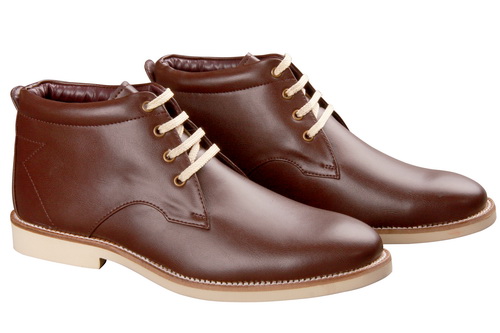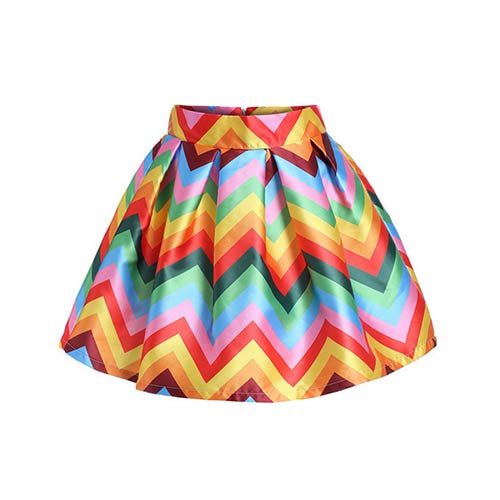shoe
What's your shoe size?
something that you wear to cover your feet, made of leather or some other strong material

What's your shoe size?
Oxford Essential Dictionary
shoe
noun
pronunciation
The word shoe sounds like who.
a covering made of leather or plastic that you wear on your foot:
a pair of shoes
What size shoes do you take?
a shoe shop
Longman Dictionary of Contemporary English
shoe
I. shoe1 S1 W3 /ʃuː/ BrE AmE noun [countable]
[Language: Old English; Origin: scoh]
1. something that you wear to cover your feet, made of leather or some other strong material:
I sat down and took off my shoes and socks.
What size shoe do you take? ⇨ ↑boot1(1), ↑sandal, ↑slipper
2. in sb’s shoes in someone else’s situation, especially a bad one:
I wouldn’t like to be in his shoes when his wife finds out what happened.
Anyone in her shoes would have done the same thing.
Don’t be cross with them. Try to put yourself in their shoes (=imagine what it would feel like to be in their situation).
3. step into/fill sb’s shoes to do a job that someone else used to do, and do it as well as they did:
It’ll be hard to find someone to fill Pete’s shoes.
4. a curved piece of iron that is nailed onto a horse’s foot SYN horseshoe
⇨ if the shoe fits, (wear it) at ↑fit1(8)
• • •
COLLOCATIONS
■ verbs
▪ wear shoes He was wearing smart black shoes.
▪ put your shoes on Put your shoes on and get your coat.
▪ take your shoes off They took off their shoes in the hallway.
▪ tie your shoes He tied his shoes in a double knot.
▪ slip your shoes on/off (=put them on or take them off quickly or gently) She slipped off her shoes and curled her feet up under her on the sofa.
▪ kick your shoes off (=take them off by moving your legs) Maria kicked off her shoes and sat down.
▪ clean/polish your shoes We used to clean our shoes every evening before we went to bed.
■ ADJECTIVES/NOUN + shoe
▪ black/brown etc Her shoes and handbag were brown.
▪ high-heeled shoes You can’t walk round town all day in high-heeled shoes!
▪ sensible shoes (=flat shoes that are not very fashionable) They were the kind of sensible shoes my mother used to make me wear.
▪ flat shoes (=with no high heel) Flat shoes are much more comfortable for walking in.
▪ platform shoes (=with a thick base) I found an old pair of platform shoes from the 1970s.
▪ lace-up shoes (=fastened with laces) He bought a pair of brown leather lace-up shoes.
▪ leather/suede shoes a pair of dark leather shoes
▪ running/jogging/training etc shoes Get yourself a good pair of running shoes if you want to take up running.
■ phrases
▪ a pair of shoes I need a new pair of shoes.
■ shoe + NOUN
▪ a shoe shop British English, a shoe store American English
▪ shoe polish
▪ shoe laces
■ COMMON ERRORS
► Do not say 'put off your shoes'. Say take off your shoes.
Oxford Advanced Learner's Dictionary
shoe
shoe [shoe shoes shod shoeing] noun, verb [ʃuː] [ʃuː]
noun
1. one of a pair of outer coverings for your feet, usually made of leather or plastic
• a pair of shoes
• He took his shoes and socks off.
• What's your shoe size?
• a shoe brush
• shoe polish
see also snowshoe
2. = horseshoe
more at fill sb's shoes/boots at fill v., shake in your shoes at shake v., step into sb's shoes at step v.
Word Origin:
Old English scōh (noun), scōg(e)an (verb), of Germanic origin; related to Dutch schoen and German Schuh.
Example Bank:
• I've had my shoes resoled.
• She wore a dark blue dress with matching shoes.
• The shoes, though elegant, pinched her feet terribly.
• a sturdy pair of walking shoes
• to break in a new pair of shoes
Idioms: if I were in your shoes ▪ if the shoe fits ▪ in somebody's shoes ▪ put yourself in somebody's shoes ▪ shoe is on the other foot
Cambridge Advanced Learner's Dictionary
Cambridge Advanced Learner's Dictionary - 4th Edition
shoe / ʃuː / noun [ C ]
A1 one of a pair of coverings for your feet, usually made of a strong material such as leather, with a thick leather or plastic sole (= base) and usually a heel:
flat/high-heeled shoes
gym/tennis shoes
He put on/took off his new pair of shoes.
Hurry and do up/lace up your shoes.
a shoe shop
a horseshoe
© Cambridge University Press 2013
Collins COBUILD Advanced Learner’s English Dictionary
shoe
/ʃu:/
(shoes)
Frequency: The word is one of the 3000 most common words in English.
1.
Shoes are objects which you wear on your feet. They cover most of your foot and you wear them over socks or stockings.
...a pair of shoes...
You don’t mind if I take my shoes off, do you?
N-COUNT
see also snowshoe, training shoe
2.
A shoe is the same as a horseshoe.
N-COUNT
3.
When a blacksmith shoes a horse, they fix horseshoes onto its feet.
Blacksmiths spent most of their time repairing tools and shoeing horses...
VERB: V n
4.
see also shod
5.
If you fill someone’s shoes or step into their shoes, you take their place by doing the job they were doing.
No one has been able to fill his shoes...
PHRASE: V inflects
6.
If you talk about being in someone’s shoes, you talk about what you would do or how you would feel if you were in their situation.
I wouldn’t want to be in his shoes.
PHRASE: usu v-link PHR
Merriam-Webster's Advanced Learner's Dictionary
1shoe /ˈʃuː/ noun, pl shoes
1 [count] : an outer covering for your foot that usually has a stiff bottom part called a sole with a thicker part called a heel attached to it and an upper part that covers part or all of the top of your foot
• She bought a pair of shoes.
• He took off his shoes and socks.
• high-heeled shoes
• dress shoes [=shoes for formal events or times]
• athletic/running shoes
• shoe polish
• a shoe store/shop
2 shoes [plural] : another person's situation or position
• I wouldn't want to be in his shoes right now.
• Anyone in her shoes would have done the same thing.
• Try to put yourself in their shoes [=try to imagine yourself in their situation] and think of how you would want to be treated.
• I don't think anyone will be able to fill her shoes [=do what she does as well as she does it] after she retires.
• He stepped into the shoes [=took the role] of president with ease.
3 [count] : a flat U-shaped piece of iron that is nailed to the bottom of a horse's hoof : horseshoe
4 [count] : the part of a brake that presses on the wheel of a vehicle - usually plural
• The brake shoes are worn out.
if the shoe fits or if the shoe fits, wear it US
- used to say that something said or suggested about a person is true and that the person should accept it as true
• “Are you calling me a cheater?” “Well, if the shoe fits, wear it.” [=(Brit) if the cap fits, wear it]
the shoe is on the other foot

